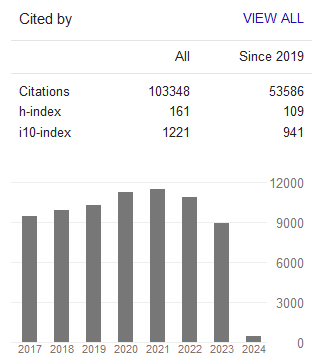Impact of Liquidity Rules on Shareholders’ Returns in Jordan Islamic Bank
- Abdullah Ibrahim Nazal
- Fuad Al-Fasfus
Abstract
This paper aims to explore the impact of liquidity increases by local and international roles on shareholders’ returns in the Jordan Islamic Bank as case study. The study methodology based on financial tables annual reports of the bank from (2009-2016) in order to analysis asset liquidity risk standard and its affection on managing balance sheet, and analysis returns for common shareholders in the Bank also discuss the result of shares return reducing. The real impact is deferent because the market price of the Jordan Islamic Bank shares is not affected negatively by the rule. Its price in the market is more than the share value by the ratio (all equities/ all shares). The percentage between the market price and ratio was equal to 202% in 2014 and reduced to 155% in 2016. By discussion, the ratio there is a gap of equities impact as a result of applying depreciation on fixed assets yearly, regardless of its growth by market price. Fair result is to increase equities based on fixed assets market price increasing. This paper contributed to the knowledge by different ways, it helps leaders and managers to find the real impact of managing liquidity risk in the Islamic Bank by the Central Bank and Basel Committee.
- Full Text:
 PDF
PDF
- DOI:10.5539/ijbm.v13n6p225
Journal Metrics
Google-based Impact Factor (2023): 0.86
h-index(2023): 152
i10-index(2023): 1168

Index
- Academic Journals Database
- AIDEA list (Italian Academy of Business Administration)
- ANVUR (Italian National Agency for the Evaluation of Universities and Research Institutes)
- Berkeley Library
- CNKI Scholar
- COPAC
- EBSCOhost
- Electronic Journals Library
- Elektronische Zeitschriftenbibliothek (EZB)
- EuroPub Database
- Excellence in Research for Australia (ERA)
- Genamics JournalSeek
- GETIT@YALE (Yale University Library)
- IBZ Online
- JournalTOCs
- Library and Archives Canada
- LOCKSS
- MIAR
- National Library of Australia
- Norwegian Centre for Research Data (NSD)
- PKP Open Archives Harvester
- Publons
- Qualis/CAPES
- RePEc
- ROAD
- Scilit
- SHERPA/RoMEO
- Standard Periodical Directory
- Universe Digital Library
- UoS Library
- WorldCat
- ZBW-German National Library of Economics
Contact
- Stephen LeeEditorial Assistant
- ijbm@ccsenet.org
